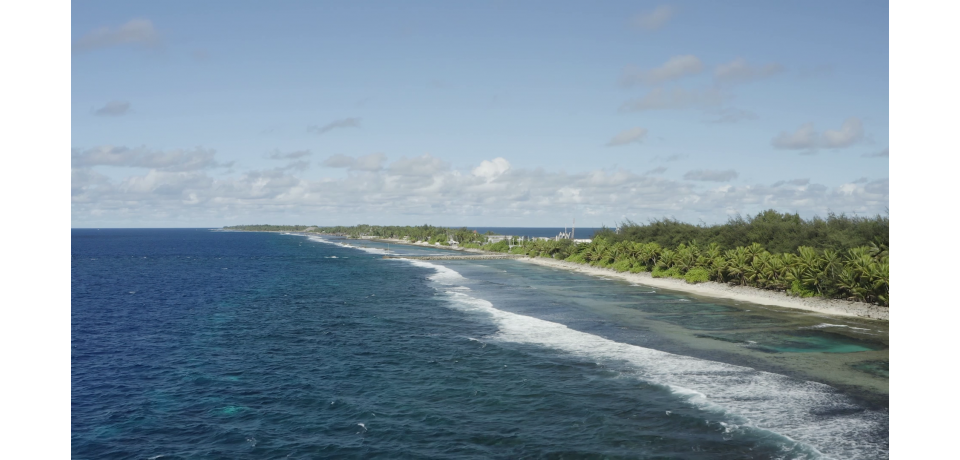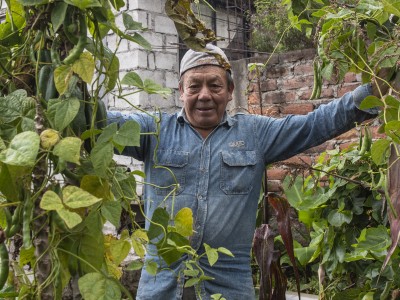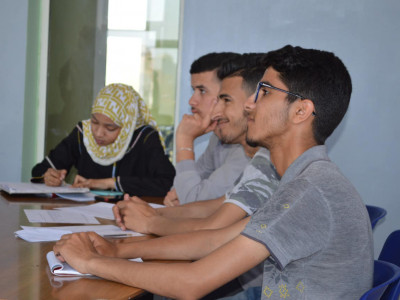Enhancing the Capacity of Pacific Island Countries to Manage the Impacts of Climate Change on Migration
Objectifs de Développement Durable Connexes et Objectifs du Pacte Mondial sur les Migrations
Résumé
As a result of climate change, natural hazards such as tropical storms, cyclones, tsunamis, floods are becoming more intense, as are slow-onset degradation impacts such as incremental sea levels rise, salt water intrusion of freshwater lenses, rising temperatures, desertification and drought.
This will have a resounding impact on people’s homes and livelihoods on Small Island Developing States (SIDS).The slow-onset impacts of climate change can exacerbate existing drivers of migration such as economic, social or political drivers. Whereas, severe natural hazard induced disasters are more direct drivers of forced displacement.
Pacific Island governments recognize the need to take precautions to minimize the risks that climate change presents. To address this issue, the Pacific Climate Change and Migration (PCCM) Project has worked to enhance local capacities, which are essential to exploring, mitigating and responding to the threat, while encouraging adaptation responses that take human mobility into account.
Objectif clé
The vision of the project is to:
-
increase protection of individuals and communities that are vulnerable to climate change displacement and migration through targeted national and regional policies; and
-
increase labour mobility opportunities for Pacific Islanders, through well-managed labour migration schemes.
Principales activités
The PCCM Project supported the capacity development of Pacific Island countries so that they are better equipped to address the impacts of climate change on migration. Capacities were strengthened by:
-
increasing awareness of the impacts of climate change on migration;
-
reinforcing regional knowledge and policy dialogue on the impacts of climate change on migration; and
-
enhancing abilities to plan and implement national policies on migration, including labour migration.
The target countries of Kiribati, Tuvalu and Nauru gathered data on how climate change influences human mobility. The generated insights were used to inform climate change responses and national action strategies to mitigate the risk of displacement. These strengthened capacities in country allowed them to more effectively participate and contribute in regional, bilateral and global schemes on migration and climate change.
Principaux succès ou facteurs innovants, bonnes pratiques et enseignements tirés (si disponibles)
Enhancing capacities and knowledge management contributes to improving the response to the impacts of climate change on migration by developing migration indicators, providing new knowledge on labour migration, and assessing community attitudes to climate change-related migration. Adopting a systematic approach, governments can develop more effective climate change responses and national strategies to mitigate the risk of displacement and enhance national capacity to participate in regional, bilateral and global schemes on labour migration.
Comprehensive climate risk management strategies have the potential to respond to needs of vulnerable populations: when disaster hits, local populations can risk becoming “trapped” by worsening conditions and few opportunities to either migrate or generate income necessary for adapting. By adopting a human rights and gender approach, climate risk management strategies can be more comprehensive and better respond to the unique challenges that women or children may face in light of the social dynamics in their countries. For example, the community survey conducted during the project found that women were less able to make independent migration decisions.
Bénéficiaires
Governments of Pacific Island countries (Federated States of Micronesia, Kiribati, Nauru, Republic of Marshall Islands, Palau, Papua New Guinea, Samoa, Solomon Islands, Tonga, Tuvalu and Vanuatu).



